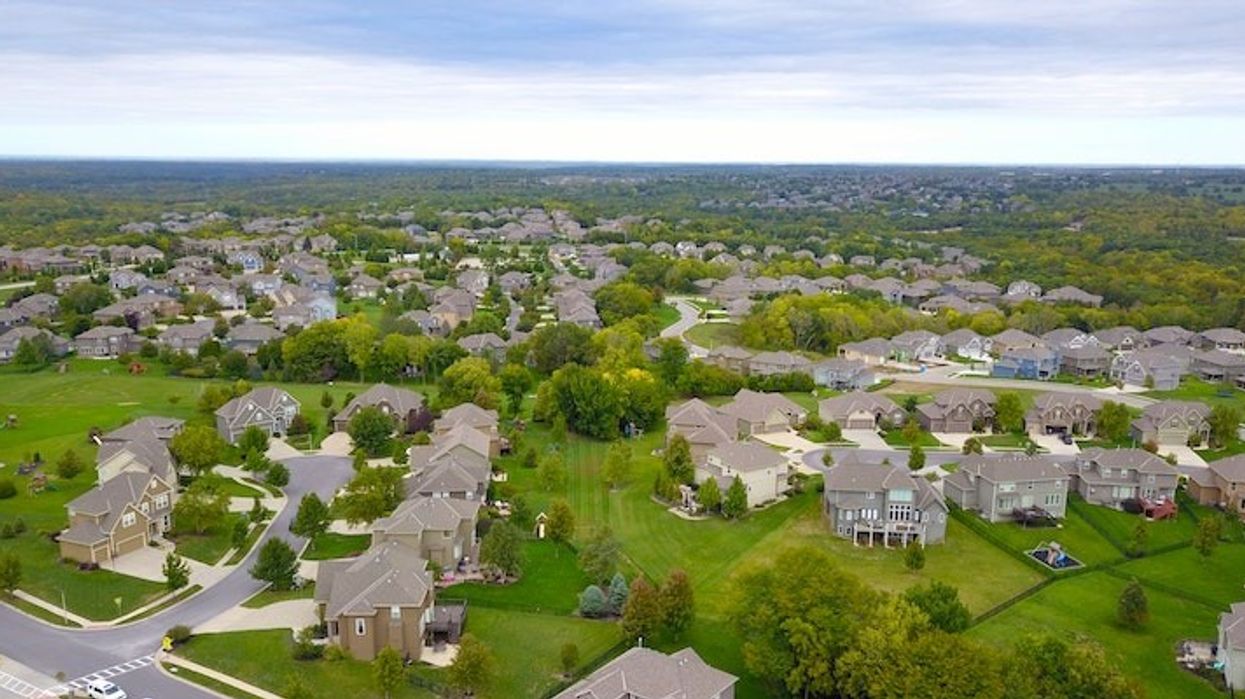Summer may, unfortunately, be drawing to a close, but Canada's housing market continues to show off its summer heat, having smashed multiple records in July, according to new data from the Canadian Real Estate Association (CREA).
Last month, as the economy continued to reopen, activity in the housing market picked up again, with national home sales and new listings continuing to rebound from its lows earlier in the year when the COVID-19 pandemic froze the market.
CREA says new listings hitting their highest level on record for the month of July, as the number of newly listed homes climbed by another 7.6% in July compared to June. CREA says new supply was only up in about 60% of local markets, as the rebound in supply appears to be tapering off in many parts of the country. However, the national increase in July was dominated by gains in the GTA.
READ: Palatial Montreal Estate Sets Highest Recorded Sale During Pandemic
National home sales also set a new record in July after they rose 26% month-over-month after 62,355 transactions were recorded, marking the highest monthly sales figure on record going back more than 40 years.
What's more, sales in July were up 30.5% compared with the same month a year ago. CREA says the jump in sales came as the number of newly listed homes climbed by 7.6% in July compared with June.
For the third month in a row, sales were up on a month-over-month basis across the country, with Canada’s largest markets showing the greatest increases. Sales rose by 49.5% in the Greater Toronto Area (GTA), 43.9% in Greater Vancouver, 39.1% in Montreal, 36.6% in the Fraser Valley, 31.8% in Hamilton-Burlington, 28.7% in Ottawa, 16.9% in London and St. Thomas, 15.7% in Calgary, 12.1% in Winnipeg, 9.7% in Edmonton, and 5.4% in Quebec City.
CREA says the actual national average price for homes sold in July was a record of $571,500, up 14.3% from the same month last year.
In July, the national average price was heavily influenced by sales in the Greater Vancouver and the GTA, two of Canada’s most active and expensive housing markets. Excluding these two markets from calculations cuts around $117,000 from the national average price. CREA added that the extent to which sales continue to fluctuate in these two markets relative to others could have further compositional effects on the national average price, both up and down.
“What a difference three months makes, from some of the lowest housing numbers ever back in April to the multiple monthly records logged in July,” said Shaun Cathcart, CREA’s Senior Economist.
“A big part of what we’re seeing right now is the snap back in activity that would have otherwise happened earlier this year. Recall that before the lockdowns, we were heading into the tightest spring market in almost 20 years. Things may have gone quiet for a few months, but ultimately the market we’re seeing right now is mostly the same one we were heading into back in March," said Cathcart.
That said, Cathcart says there are some new factors at play now as well.
"There are listings that will come to the market because of COVID-19, but many properties are also not being listed right now due to the virus, as evidenced by inventories that are currently at a 16-year low. Some purchases will no doubt be delayed, but the new-found importance of home, lack of a daily commute for many, a desire for more outdoor and personal space, room for a home office, etc. will certainly also spur activity that otherwise would not have happened in a non-COVID-19 world.”





















